Indigenous Sport Month: Joe Williams opens up on NRL concussion battle
Former Indigenous NRL star Joe Williams is battling to save his brain, with repeated concussions during his playing career making life a living hell.
NRL
Don't miss out on the headlines from NRL. Followed categories will be added to My News.
Joey Williams, not so long ago, was scrolling through Facebook when he stumbled across a post which confused, then troubled him.
“Page of a friend,” he says.
One Williams hadn’t seen in some time.
But now as he read, it was quickly apparent someone was writing in his mate’s place.
Not with them. But for them.
It immediately rocked the South Sydney old boy.
A tribute? That made no sense.
Which is why within minutes, he was ringing around to learn who, if anyone among his friends, knew something.
Problem was, they all did.
With each explaining, call after call, how this retired rugby league player had not only learned of the loss some time ago, but grieved with them.
“But I can’t remember it,” Williams concedes now, his voice softening. “Can’t remember any of it.”
Watch The 2021 NRL Telstra Premiership Live & On-Demand with No Ad-Breaks During Play. New to Kayo? Try 14-Days Free Now >

A truth which saddens this proud Wiradjuri man. A fella who not only forgets car keys, meetings, even picking up his children from school, but has now started grieving that friend all over again.
Same as, occasionally, he finds his sentences slowing. Even slurring.
That’s a concern, sure. But not so much a worry as that day he couldn’t remember the birth of his daughter, Franki.
Or even her name.
“Happened two days after she was born,” Williams says of the toddler, now three. “I just stood there looking at my partner, unable to remember anything or even get her name out.
“That’s when I just broke down, crying.”
So as for the hyped NRL concussion debate now fracturing the code? An aggressive swirl of headlines that not only has ARL Commission chairman Peter V’landy’s leadership under threat, but players threatening action, Steve Mortimer admitting dementia and shots to the head being sin-binned in record numbers.
“I’m not interested in debating if concussion affects people, because I’m living it,” Williams says.
“Like forgetting my daughter’s name. Or at the end of a long day, slurring words.
“Is that linked to me being hit in the head? Of course, it’s f...ing linked.”
But please, do not mistake Williams’ understanding for anger.
“Because, again, I’m not interested in those who write the cheques in rugby league arguing about what is or isn’t head trauma,” he says. “I just want to fix it.”
So how does Joey Williams save his brain?
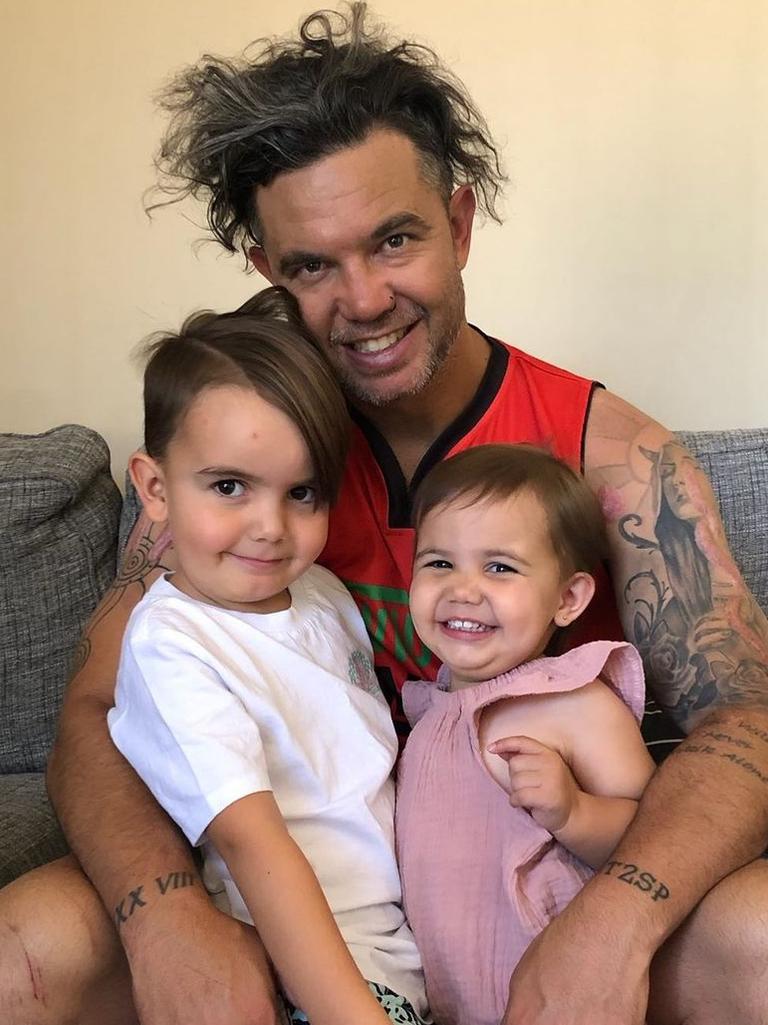
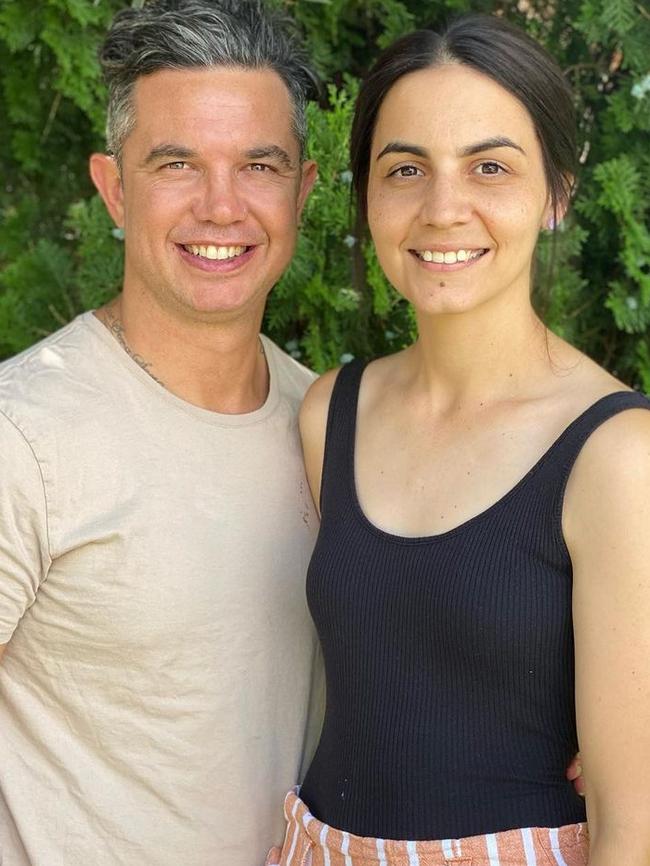
Certainly, the bloke is no stranger to a fight.
Especially when you listen to his journey through the NRL as a 77kg halfback, then into a professional boxing career, while also living with depression and bipolar, overcoming a suicide attempt, and eventually shaking a drug addiction so bad he was buying Oxycodone off the black market.
Then, there are the voices in his head.
“Telling me every day,” he says, “to die”.
But still, Williams is here.
Aged 37, the father of five beautiful children is living the type of life that takes in being an author, speaker, mentor, healer, activist, student, musician, dancer, youth worker, coach, motivator and, most wonderfully, heading The Enemy Within – a wellbeing and suicide prevention organisation.
Which is why, most days, this former first-grader with South Sydney, Penrith and Canterbury finds himself in schools, speaking. A platform where he is quite obviously intelligent, articulate, reasoned.
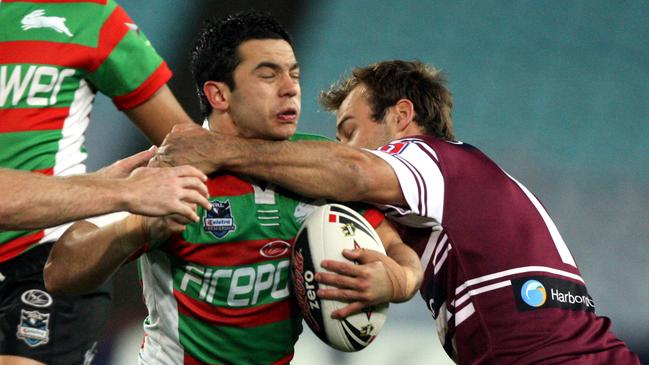
Same deal during his myriad other roles.
One of which includes coaching Dubbo St Johns U14s, where Williams recently organised for no less than South Sydney stars Latrell Mitchell and Cody Walker to attend a team barbecue.
Elsewhere, he’s an ABC panellist, a motivator for all types, and that strongest of voices on Australian Indigenous rights issues.
But as for the voices in his head?
These days, Williams opts to label them with the words of Professor Marcia Langton, who calls his swirl of internal noise “a gift”.
“Because when I’m speaking on Q&A or The Drum, I’ve got three, sometimes four voices going internally,” Williams explains. “Voices that, while western medicine deems them an illness, are talking to me, posing questions.
“My brain is working so fast, all those different conversations are throwing up solutions – and I can decipher that.”
But not back in 2012.
No, back nine years on the day he tried to end his own life, Williams was completely overwhelmed by a head noise that had sent him spiralling into depression, confusion and addiction.
Helpless, he says, against those voices that first appeared after being knocked cold playing rugby league at 13.
But that wasn’t his first severe concussion. No, that was aged 11.
“But the second one, that’s when the voices arrived,” he says.
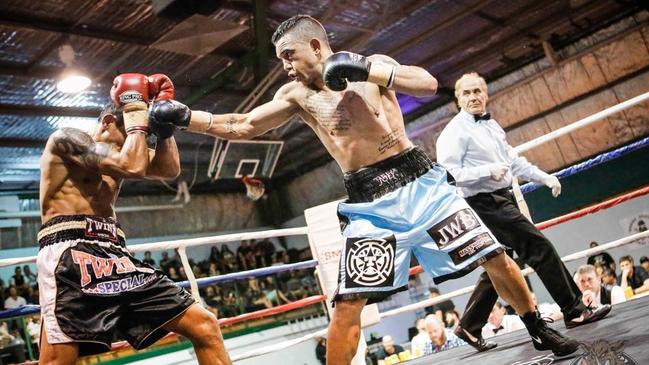
“And I know every single person has a dialogue in their heads. You, me, everyone.
“It’s just that mine, every day, tells me to die.
“Tells me I’m worthless. Or leaves me feeling a shitload of doubt.
“And the very first time I remember that starting, it was on the back of that concussion. And I’m not the only footballer with a story like this, either.”
Which is an uneasy truth when you learn what happened next.
Like Williams’s NRL debut against Cronulla in 2004, a game he doesn’t remember after colliding with the knee of Sharks prop Jason Stevens.
Same as other serious episodes include being whacked by then Roosters enforcer Sia Soliola or colliding, even in a Panthers training session, so badly with Frank Pritchard “my entire body shook”.
But as for how many concussions he received in total?
“Couldn’t count,” Williams shrugs. “The best I weighed in the NRL was 82kg.
“So there wasn’t a game I played where I didn’t see stars.”
But hate on rugby league? No chance. Same deal, boxing.
“Because mentally, that’s how I learned to fight back,” he insists of the sweet science. “And how I kicked my addiction.”
Although, undoubtedly a price was paid.
“Only had three losses,” he says. “But each time I was out before hitting the canvas.”
But again, Williams now wants only solutions.
Which is why for the past six years, this retired leaguie has been working closely with associate professor Alan Pearce on the concept of neuroplasticity – or the brain’s ability to form new connections and pathways while changing how its circuits are wired.
“And I know talking about the negatives, that’s the story you want,” Williams says. “But what I’m interested in are the foods I can eat, like fish oils, to help rewire my brain.
“Or how reading, learning a language, playing Sudoku, it all helps.
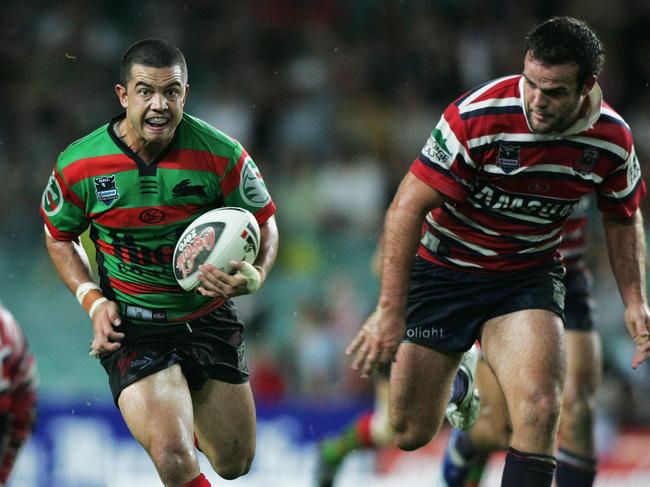
“When I first returned to study three years ago, I couldn’t always retain the information I was reading. But that process, it was still helping to rewire my brain. Slowly rebuilding my memory.”
Which matters. “Because the two most important days in your life are the day you’re born and the day you find out why,” Williams says.
“And for the longest time, I thought my ‘why’ was rugby league.
“But it isn’t. I’m here to help others.”
Which also means learning to help himself.
“And who knows where I’ll end up,” he says. “Undoubtedly, my brain is improving. But even with all we know, it really is just the size of a pin head compared to what can still be learned.”
Which is why, every day, Williams studies. That fight to save his brain continually squeezed into whatever space appears on a roster of speaking, teaching, blogging, coaching, raising his family, visiting schools, then youth groups, dancing, writing, fundraising and, forever, looking to heal.
All of it too, while growing himself.
That, and silently grieving the loss of his friend.
HOW INDIGENOUS ELDERS COURT SAVED NRL STAR’S CAREER
—Fatima Kdouh
The message from the Aboriginal elders to Jack Wighton as he sat in court was crystal clear.
“They wanted me to be a leader for my people, my family and for myself,” Wighton said.
The NSW and Canberra powerhouse believes he has been a role model for most of his life, but his run-in with the law almost derailed his dreams.
Wighton was charged with assault over an alcohol-fuelled incident in Canberra and narrowly avoided a prison sentence after appearing at the Galambany Circle Sentencing Court.
That night in February 2018 also cost Wighton his leadership roles with the Raiders and Indigenous All Stars.
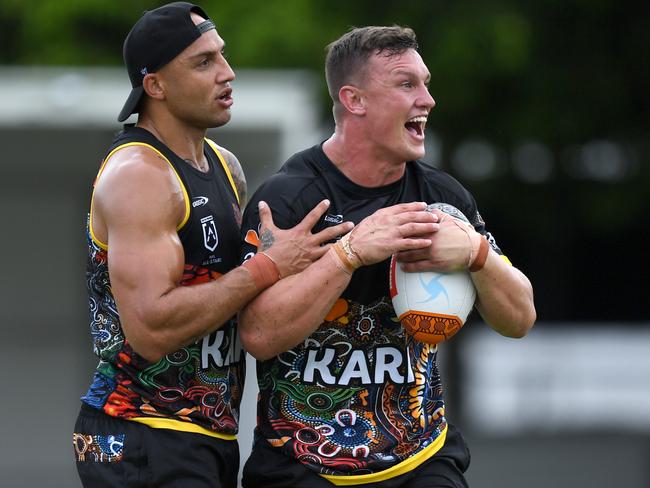
Three years on and the proud Wiradjuri man now considers it a “blessing in disguise’’ that helped turn his life around.
But he has one more goal – to regain his place in Laurie Daley’s Indigenous All Stars leadership group.
“I had just got put in the Raiders leadership group and the All Stars leadership group and two weeks later I mucked up,” Wighton told The Daily Telegraph.
“I got kicked out of everything.
“But since then, I have only ever wanted to go back into the groups. This year, I was asked back into the Raiders group and we’ll see what the future holds with the other stuff.”

If the last three years are anything to go by, the future holds even more success for Wighton both on and off the field.
In 2019, Wighton helped guide Canberra to its first grand final in 25 years and was awarded the Clive Churchill Medal for best on ground. NSW coach Brad Fittler rewarded Wighton’s devastating form with a Blues debut.
Last year, the five-eighth then reached the game’s highest summit and was awarded the NRL’s most prestigious individual award, the Dally M Medal.
Wighton credits the elders of the Galambany Court, which provides culturally sensitive sentencing options for Aboriginal and Torres Strait Islander people, for playing a crucial role in putting the star playmaker on the prosperous course he is on today.
“One of the main messages from the elders was to continue to be a good role model for young kids, which I had been most of my life,” Wighton said.
“They wanted me to be a leader for my people, my family and for myself. That’s the main thing the elders wanted me to take out of it. We all muck up and make mistakes.
“But they wanted to see me dust myself off from this situation and make amends and show young kids if you muck up, it’s not the end of the world. You can still rebuild yourself, go again, and become a better person.
“And that’s what I wanted for myself, that was the main goal. I think I have done all right in achieving that so far.
“Obviously I wish I didn’t do what I did, but it was a blessing in disguise and it made me take a good hard look at myself … I’m far from perfect, trust me.
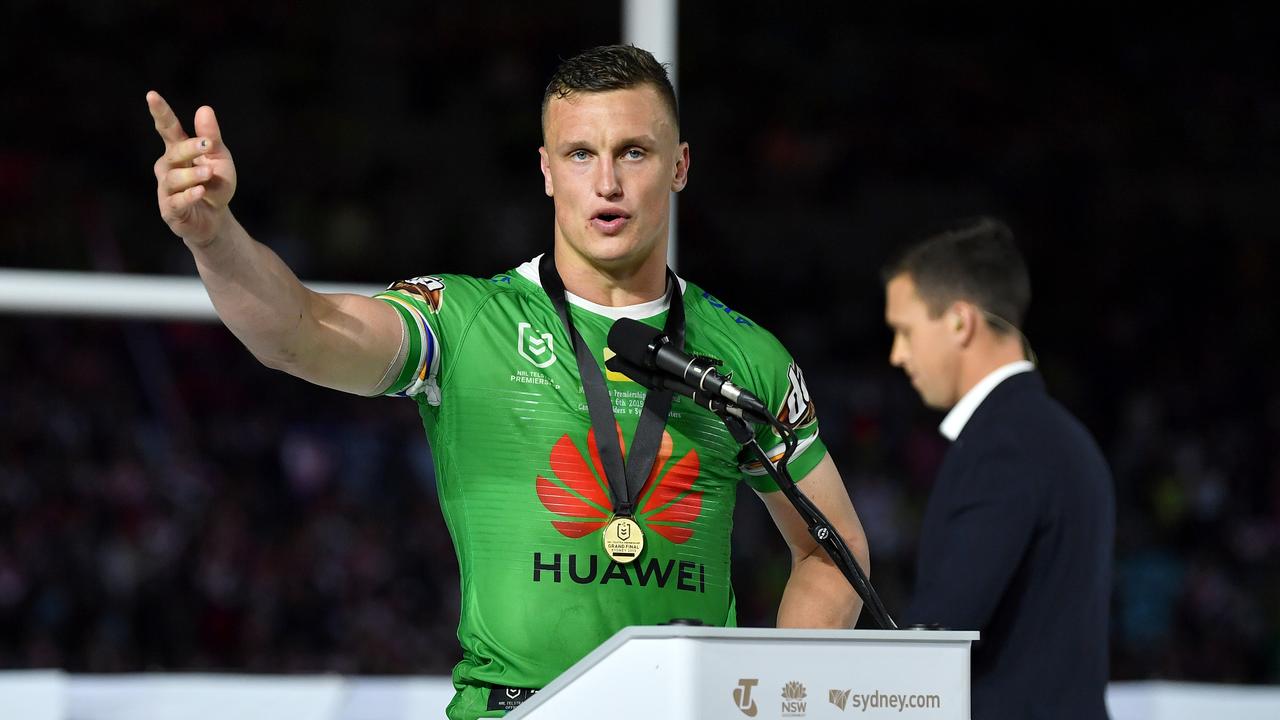
“But it has opened my eyes and it made me see a lot clearer in where I wanted to go in life.”
Born in Orange, Wighton believes the Indigenous All Stars concept is helping to strengthen the sense of pride in being Aboriginal and Torres Strait Islander not only for NRL players but young Indigenous children.
“In the All Stars camp they actually showed us videos of some schools doing the war cry and using it as welcoming and as a sign of joy and pride. It gave me chills to watch those videos,’ Wighton said
“Seeing young kids with so much passion for their culture, repeating what we are doing on a footy field was really cool.
“It’s filtering down.”
More Coverage
Originally published as Indigenous Sport Month: Joe Williams opens up on NRL concussion battle





